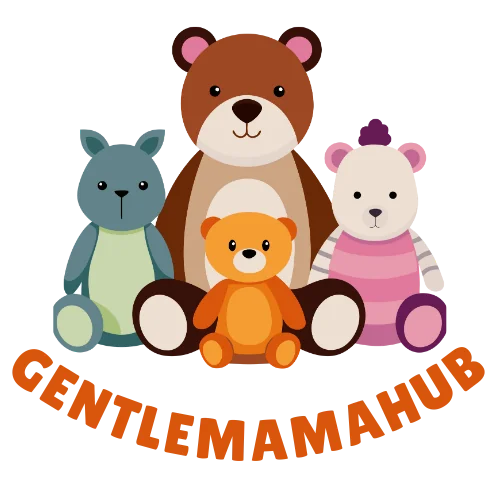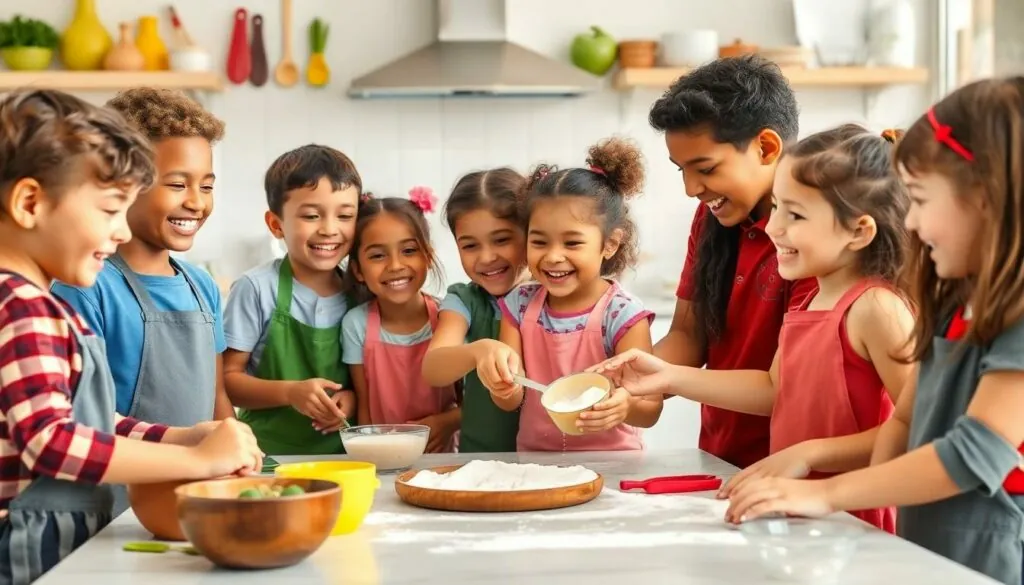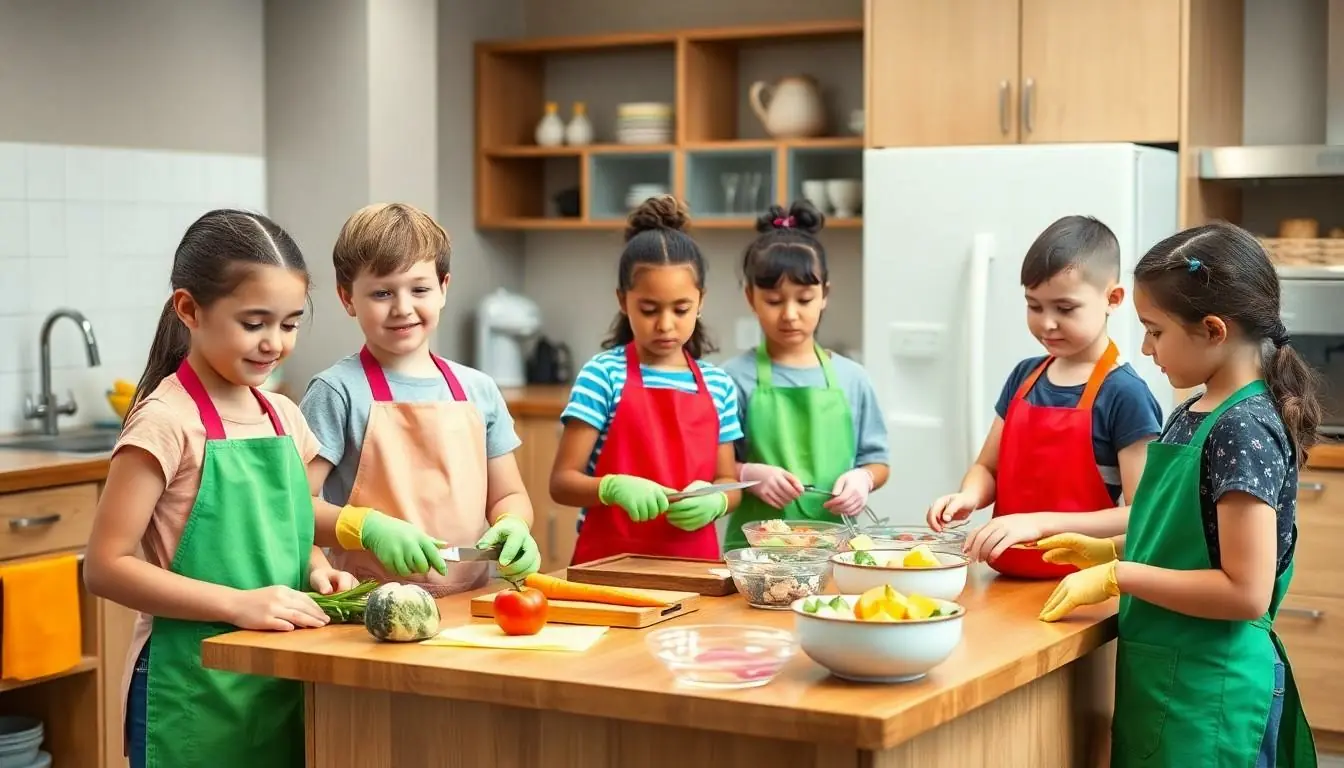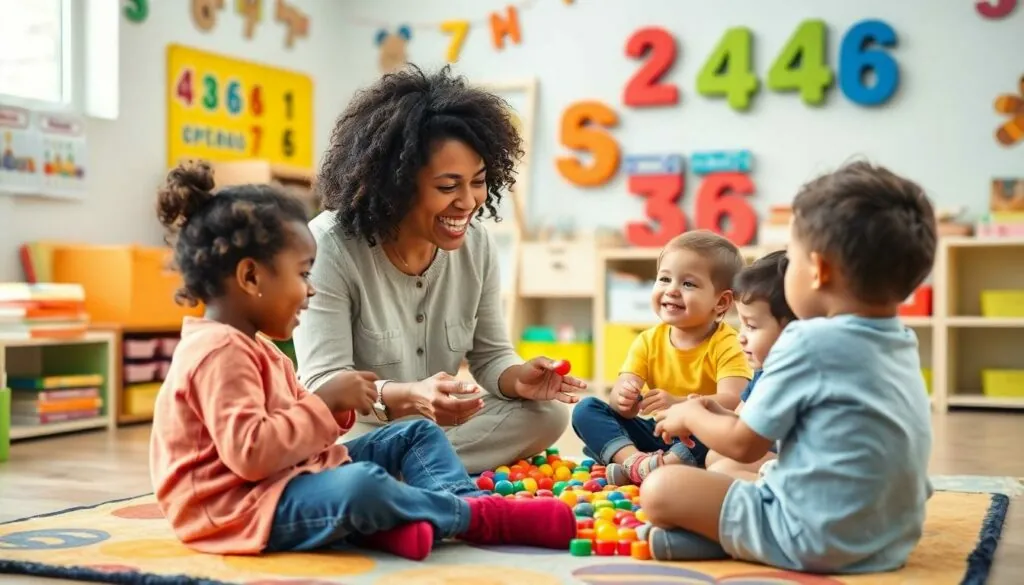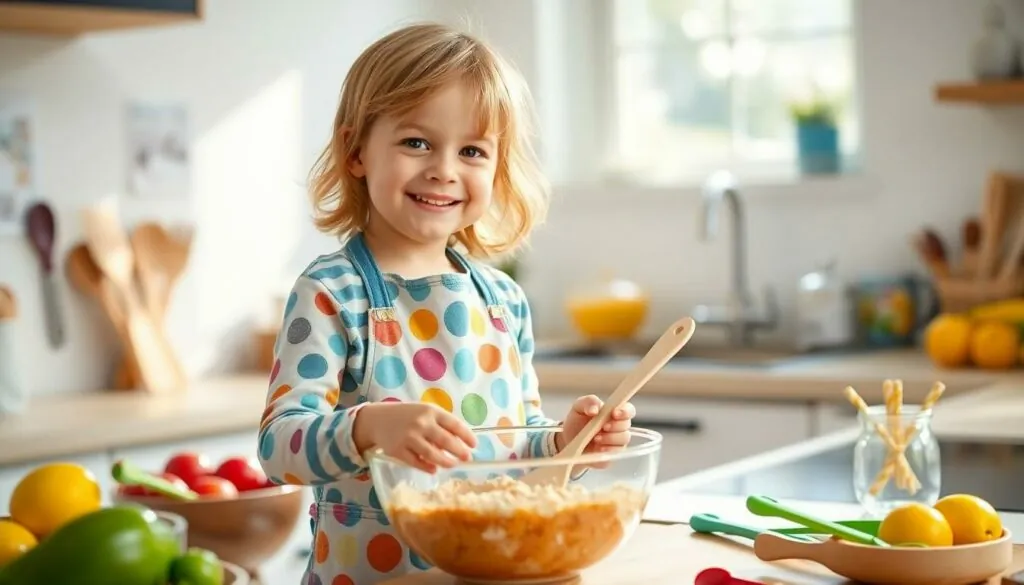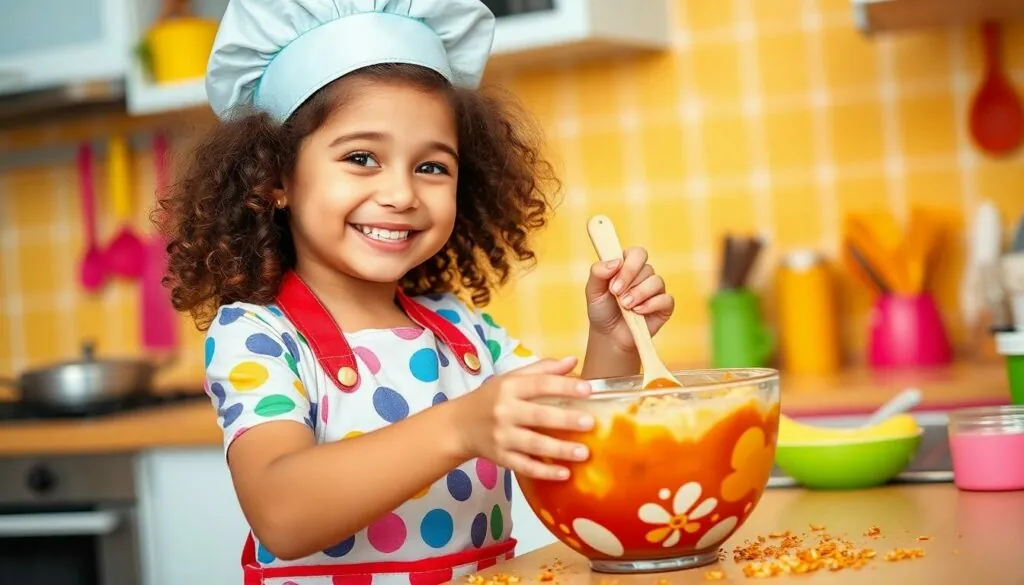Table of Contents
ToggleLooking for a way to turn those kitchen disasters into culinary masterpieces? Kids’ cooking lessons are popping up everywhere and they’re the perfect recipe for family fun. These hands-on classes teach children essential kitchen skills while creating delicious dishes they’ll be proud to share.
From basic knife safety to baking fundamentals local cooking schools offer specialized programs designed just for young chefs. Whether it’s crafting the perfect pizza dough or decorating show-stopping cupcakes these classes provide a safe supervised environment where kids can explore their creativity in the kitchen. Plus they’ll learn valuable life skills that’ll serve them well beyond their growing years.
Benefits of Kids’ Cooking Classes
Cooking classes equip children with practical skills while fostering creativity in the kitchen. These structured learning environments transform basic cooking techniques into valuable life lessons through hands-on experience.
Building Life Skills Through Cooking
Cooking classes teach children essential mathematical concepts through measuring ingredients measuring ingredients calculating serving sizes. Young chefs learn problem-solving skills by following recipes adjusting temperatures timing multiple dishes. The kitchen environment develops:
- Time management skills from coordinating multiple recipe steps
- Team collaboration during group cooking projects
- Basic budgeting through grocery planning activities
- Critical thinking when substituting ingredients
- Fine motor skills via chopping kneading rolling dough
Children gain confidence by completing dishes independently practicing kitchen safety protocols handling equipment properly. These classes incorporate real-world applications of:
- Basic chemistry through observing ingredient reactions
- Fractions through recipe measurements
- Reading comprehension via recipe instructions
- Organization through mise en place preparation
Developing Healthy Eating Habits
Cooking classes introduce children to diverse ingredients nutritious food choices balanced meal planning. Kids who participate in hands-on food preparation show increased interest in:
- Fresh fruits vegetables through taste testing activities
- Whole grains by creating homemade breads pasta
- Lean proteins via proper cooking techniques
- Healthy snack alternatives through creative recipes
The practical experience includes:
- Reading nutrition labels
- Understanding portion control
- Identifying food groups
- Learning preservation methods
- Reducing processed food consumption
Students explore international cuisines experiment with new flavors develop appreciation for cultural food traditions. This exposure helps establish positive relationships with food encourages mindful eating habits creates informed food choices.
Finding Local Cooking Classes for Children
Local cooking classes for kids combine education with entertainment in convenient neighborhood locations. Parents can discover age-appropriate culinary programs through several established channels.
Community Centers and Recreation Programs
Community centers offer affordable cooking classes for children ages 5-12 throughout the year. Local parks departments host 4-8 week programs focusing on basic kitchen skills, food safety, and simple recipe preparation. These classes typically run 60-90 minutes per session with 8-12 students per instructor. Registration opens through city recreation websites or in-person at community facilities. Many centers provide scholarship opportunities for families, with class fees ranging from $45-$125 per course series. Popular programs include after-school cooking clubs, summer camp culinary workshops, and weekend parent-child cooking sessions.
Private Cooking Schools
Dedicated cooking schools deliver specialized instruction in professional kitchen environments. These establishments maintain small class sizes of 6-8 students and feature commercial-grade equipment sized for young chefs. Programs include beginner basics, advanced techniques, and themed courses like baking or international cuisine. Classes meet weekly for 2-3 hours over 6-12 weeks, with tuition ranging from $200-$400 per series. Private schools offer flexible scheduling options including evening classes, weekend workshops, and school holiday camps. Each location provides all ingredients, tools, and safety equipment for participating students.
Types of Kids’ Cooking Programs
Local cooking programs offer diverse learning opportunities tailored to different age groups schedules. Each program type provides unique experiences that complement children’s culinary education journeys.
After-School Classes
After-school cooking programs run 60-90 minute sessions on weekdays between 3 PM and 6 PM. These classes integrate seamlessly into existing school schedules providing structured activities for students ages 6-12. Kids learn essential cooking techniques like measuring ingredients chopping vegetables safely operating kitchen equipment. The curriculum includes making quick healthy snacks preparing simple dinner recipes exploring international cuisines. Many programs partner with local schools offering convenient pickup locations transportation options. Classes maintain small group sizes with 8-10 students per instructor ensuring personalized attention safety supervision.
Summer Cooking Camps
Summer cooking camps operate as week-long immersive culinary experiences during school breaks. These full-day programs run from 9 AM to 3 PM incorporating themed activities recipe creation kitchen science experiments. Campers ages 7-14 progress through skill levels mastering techniques from basic knife skills to advanced baking methods. Activities include farmers market visits garden harvesting sessions kitchen chemistry demonstrations. Programs accommodate 12-15 participants per session featuring professional chef instructors specialized equipment. Camps culminate in cooking competitions family meal presentations celebrating acquired skills.
Parent-Child Cooking Workshops
Parent-child workshops create collaborative cooking experiences lasting 2-3 hours on weekends holidays. These interactive sessions accommodate 6-8 pairs of participants focusing on family-friendly recipes traditional cooking methods. Programs teach kitchen organization meal planning grocery shopping strategies. Workshops cover diverse topics including holiday baking international cuisine healthy meal preparation. Families work together at dedicated cooking stations equipped with necessary tools ingredients. Each session ends with shared dining experiences recipe collections take-home materials.
What to Look for in Children’s Cooking Classes
Selecting the right cooking class enhances a child’s culinary education experience. Parents evaluate several key factors to ensure their children receive appropriate instruction in a safe learning environment.
Age-Appropriate Curriculum
Quality cooking programs group children by age ranges to match their developmental abilities: 5-7 years, 8-10 years, and 11-14 years. Each age group focuses on specific skills, like basic mixing techniques for younger children and knife skills for older participants. The curriculum incorporates progressive learning stages, starting with simple no-cook recipes for beginners then advancing to complex dishes requiring multiple steps. Instructors adapt teaching methods using age-specific tools such as color-coded measuring cups for younger children or digital thermometers for older students. Classes maintain engagement through interactive elements like hands-on food preparation stations customized for each age group’s capabilities.
Safety and Supervision Standards
Professional cooking classes maintain strict safety protocols including student-to-instructor ratios of 6:1 for younger children and 8:1 for older groups. Instructors hold food safety certifications and first aid training to ensure proper handling of emergencies. The kitchen space features child-sized equipment such as specialty knives designed for small hands plus step stools for proper counter height access. Safety measures include designated handwashing stations, non-slip mats, heat-resistant gloves, and clear emergency procedures. Instructors demonstrate proper techniques for handling kitchen tools, operating appliances, and maintaining food safety temperatures. Regular equipment inspections ensure all cooking tools meet current safety standards.
Cost and Schedule Considerations
Local cooking classes for kids offer diverse pricing structures with convenient scheduling options to accommodate families’ needs.
Class Packages and Pricing Options
Single-session cooking classes range from $45-75 per child for a 90-minute lesson. Monthly memberships cost $175-250, including 4-6 classes with all ingredients provided. Premium packages at private cooking schools start at $299 for 8 weekly sessions featuring specialty ingredients specialty equipment. Sibling discounts reduce costs by 10-15% when enrolling multiple children. Many programs include:
- Take-home recipe cards
- Branded aprons or chef hats
- Digital photo collections
- Kitchen safety equipment
- Ingredient shopping guides
Flexible Scheduling for Busy Families
Programs operate during peak convenience hours to match family schedules. Morning sessions run from 9 AM-11 AM on weekends. After-school programs operate from 3 PM-5 PM on weekdays. Holiday camps span full days from 9 AM-3 PM during school breaks. Registration options include:
- Drop-in classes for spontaneous learning
- Monthly recurring sessions
- Weekend morning intensives
- School holiday programs
- Summer camp weeks
- Make-up class credits for missed sessions
Many locations offer online booking systems with 24-hour cancellation policies. Parents receive text notifications about class updates schedule changes.
Popular Cooking Class Themes for Kids
Kid-friendly cooking classes offer diverse themes that spark culinary creativity while teaching essential kitchen skills. These specialized programs combine education with entertainment through engaging hands-on activities.
Global Cuisine Adventures
Children explore international flavors through immersive cooking experiences focused on specific regions. Kids create authentic Italian dishes like handmade pasta fresh tomato sauce. Asian cuisine classes teach students to roll sushi prepare stir-fry dishes with fresh vegetables. Mexican cooking sessions introduce traditional taco making guacamole preparation tortilla crafting. European baking courses feature French croissants German pretzels British scones. Mediterranean classes expose children to Greek spanakopita Spanish paella Turkish kebabs. Each cultural theme includes facts about food traditions regional ingredients cooking techniques unique to that cuisine.
Baking and Pastry Making
Baking classes teach children fundamental pastry techniques through hands-on practice with measuring mixing decorating. Students learn to create classic desserts like chocolate chip cookies vanilla cupcakes fruit pies. Advanced sessions cover cake decorating skills including piping techniques fondant shaping color mixing. Bread making workshops introduce yeast dough preparation kneading techniques proper proofing methods. Special projects include themed holiday treats seasonal decorations custom birthday cakes. Kids master essential baking tools like rolling pins pastry bags measuring cups scales. These sessions emphasize precision timing temperature control ingredient ratios mathematical concepts.
Conclusion
Kids’ cooking lessons offer an invaluable opportunity for children to develop essential life skills while having fun in the kitchen. These classes provide more than just culinary knowledge – they’re stepping stones to independence confidence and healthy lifestyle choices.
Finding the right cooking class near you is easier than ever with numerous options available through community centers and private cooking schools. Whether it’s after-school sessions summer camps or parent-child workshops there’s a program to suit every family’s needs and schedule.
Parents who invest in their children’s culinary education are giving them a lifelong gift that extends far beyond the kitchen. It’s an investment in their future health creativity and personal growth that will serve them well throughout their lives.
